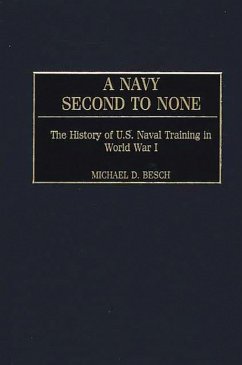
Trial by Fire (eBook, PDF)
Command and the British Expeditionary Force in 1914
Versandkostenfrei!
Sofort per Download lieferbar
68,95 €
inkl. MwSt.
Weitere Ausgaben:

PAYBACK Punkte
34 °P sammeln!
While existing accounts of this period have elevated the exploits of the British soldiers on the battlefield to almost legendary status, the operations of the British Expeditionary Force in the dramatic opening campaign of the First World War remain poorly understood. Based on official unit war diaries, as well as personal papers and memoirs of numerous officers, this study sheds significant new light on the retreat from Mons in August 1914, the advance to the River Aisne in September, and the climactic First Battle of Ypres in October and November. In addition, Gardner provides important insi...
While existing accounts of this period have elevated the exploits of the British soldiers on the battlefield to almost legendary status, the operations of the British Expeditionary Force in the dramatic opening campaign of the First World War remain poorly understood. Based on official unit war diaries, as well as personal papers and memoirs of numerous officers, this study sheds significant new light on the retreat from Mons in August 1914, the advance to the River Aisne in September, and the climactic First Battle of Ypres in October and November. In addition, Gardner provides important insights into the ideas and values of British officers in the initial stages of the war. Beyond explaining the conduct of the 1914 campaign, Gardner analyzes the initial stages of the learning curve experienced by British officers as they grappled with an unaccustomed type of warfare, including the unprecedented scale and intensity of the conflict as well as the advent of trench warfare. He also demonstrates the impact of rivalries among senior officers on the operations of the army. As a whole, the study adds depth to our understanding of command in European armies during the First World War.













